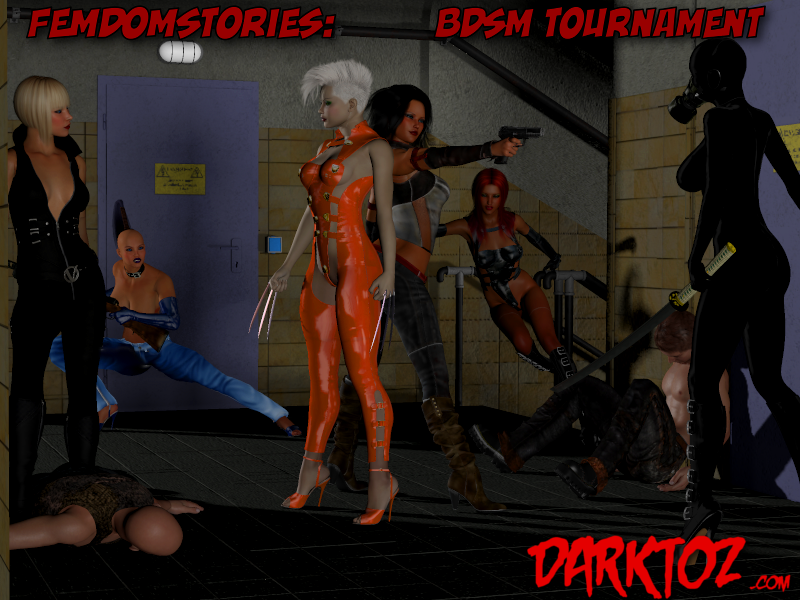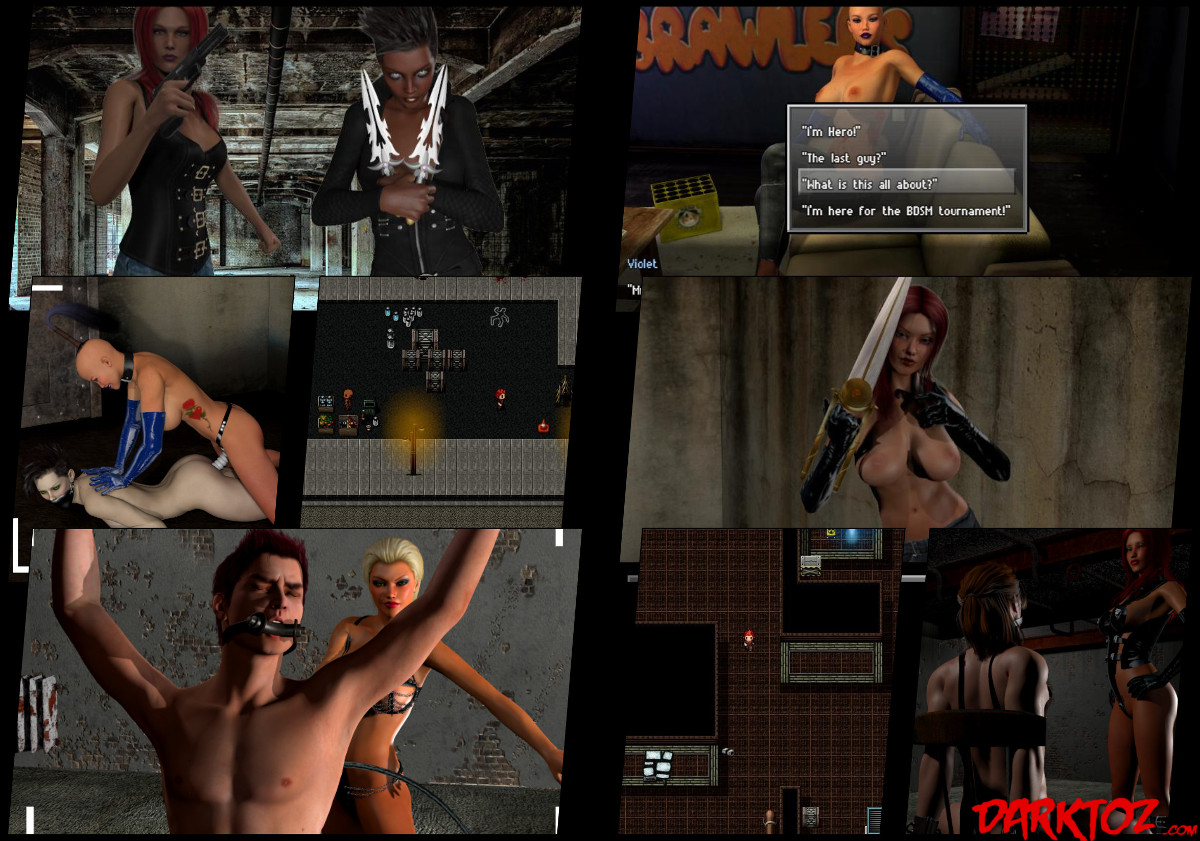You seriously necroed this almost year-old thread just to say THAT?!
It wasn't entirely without value. I've been meaning to play this game since it was announced and just kept putting it off because every time I hear about it, it's all criticism about how tedious and... RPG-Maker it is, if you will. I finally played through it last night as I was bored and it popped up here.
@Darktoz I understand that this was your first game, it's now complete, and you've learned from it and moved on, but I'd like to talk a bit about it anyway.
Keep in mind, this is more of a note on the importance of maintaining player interest than a review or a discussion about the game's content. The player's attention is your top priority as a game designer. If they lose interest, they will stop playing, and everything else about the game will cease to matter; you can have the best game in the world, but it won't matter if nobody is playing it. I can't go over the whole of human psychology here, but I want to highlight a few potential problems that I see a lot in RPG-Maker games which also happen to be here. If you're not around for this, maybe another RPG-Maker/game dev will find it interesting.
So, people like to feel in control of things and believe that their actions are meaningful. No one likes random, arbitrary outcomes; our brains strive to arrange events so they make sense. When you design a model world for your players to interact with you dictate how much control the players have by allowing or denying game-play options. Therefore, it's your responsibility to provide an illusion of
meaningful choice to the players. Do away with whatever moral concerns you have about deceiving your players; it
has to be an illusion because you can't possibly cover every option a single player might conceivably want to attempt, never-mind every player. You should try, within reason, but it will never be perfect. You just do what you can to make them think they're interacting
meaningfully with a logical world.
One of the ways to NOT provide this illusionary sense of agency is to use trial and error. The "puzzles" in BDSM Tournament use trial and error (read: meaningless filler) in place of allowing the player to purposefully decide the outcome via their own merits. One player will breeze through the sewer platform area by sheer luck, while a second gets increasingly frustrated with it for an hour before outright deleting the game, while a third resigns himself to the tedium of taking a step, saving the game, taking another step, quitting and reloading the game, taking another step, quitting and reloading the game, etc. None of these are good outcomes: It's not satisfying to resolve a puzzle by blundering through it because you might as well have just been pushing random buttons (an activity you probably agree isn't particularly stimulating), deleting the game is obviously terrible, and forcing the player to resort to save-scumming means you've failed to engage/stimulate them properly. You're obviously a fan of masochism, which is great, and the theme can sometimes be appropriate, but it's important to distinguish between theme and mechanics. If the player is to be frustrated, it should come from an appealing source: a dominatrix edging them over and over, or prolonged breath-play, or relentless mocking from a sexy companion. In short, things that they find erotic. When it gets frustrating because you had to arbitrarily choose one of three directions to walk in and two of them will force you to fight a mutated fish before starting the maze over (or alt-F4 and reopen and reload the game), you've done something wrong... unless your audience consists of people who get off on that sort of thing, in which case we need to have a talk about your marketing skills because that is not what I signed up for!
The button puzzles suffer a similar problem. There's no in-game way to know which buttons you should press, so you just keep banging your head into the wall until it works or you get fed up and delete the game. I know you've provided a walk-through to ease the suffering, but it's not well-designed because players can cheat past the challenge with outside material. Any kind of hint to the process or a separate challenge that divulges the answer would have helped tremendously. The player will feel accomplished when they figure it out themselves with just a little nudge, or when they overcome the puzzle directly by beating up the mini-boss that has a spare key or finding the out-of-the-way location that has a slip of paper with the combination on it, or whatever other deliberate challenge you've set. You have the opposite effect when you force them to just flail about until it randomly works. Which leads into my next point...
Random battles don't mix with puzzle rooms. They're a jarring interruption to your thought process of solving the puzzle. This is a fundamental error in itself, but it's especially egregious in your game for two reasons. The first is that battles in this game are boring (more on this later). The battles are filler, and they serve only to pad out playtime, as if time invested = a good game (this isn't true, and it very visibly preys on the sunken cost fallacy, so try to avoid it whenever possible). The second reason it's extra bad is because you don't have real puzzles for the player to think about, so you're just replacing tedium with more tedium. Ostensibly, the point of putting the puzzle there is to break up the usual game-play loop with something different, so make sure it's actually different.
The riddles are better than the sewer/button non-puzzles because the player's knowledge is actually a factor in overcoming them, but the overall illusion of meaningful choice is likely going to be shattered over the course of eight riddles because nothing happens when the player answers one of them incorrectly; they can simply try again immediately. This is a failure to provide the sense of agency we need, because now the player realizes it doesn't matter what they do, and that they're just along for the ride instead of determining their fate via their own input. The wolf room would have benefited from something like a point system to determine overall success (the details of which are hidden to the player for dramatic tension, but hints are given to their general odds of survival) or an alternative challenge upon failing the riddle. It doesn't matter how you do it, as long as there is apparent purpose to both success AND failure.
Mazes... are a mixed bag. I tend to complain about mazes in RPG-Maker games because developers typically use them as a substitute for map design that actually makes sense, and because navigating basic labyrinths doesn't make for stimulating game-play. That said, I won't bitch too much about them here, because the whole premise of the tournament is that it's a trap for its desperate participants, so having the arena be a complex mess of winding paths is setting-appropriate. As well, the high resolution makes navigating them much less obnoxious than it could have been. With this combination, we get the immersiveness that Lady Lynx doesn't want people to simply walk out without subjecting the player to excess bullshit. Plus, there's lots of loot. There's only one true dead-end corridor in the entire game, so it doesn't feel awful wandering around the maze and getting nothing but depleted resources for your time (this is very important, because the game is always pushing you forward, and you can get stuck with no recourse but to restart the game or reload a much earlier save if you trap yourself via poor resource management). In fact, I ended the game with almost 40 first aid kits and 18 energizers. That's pretty good considering I didn't save-scum and only used the walk-through for the "puzzles."
Lastly, I feel like the game would have benefited greatly from more detailed battles. Enemy variety is limited, and every enemy has only a basic attack that does a set amount of damage. They could have had weaknesses and statuses and abilities to provide flavor, force you to change the way you fight them, provide more depth to long-term resource management, etc. The way they fight is always the same, and then the way you fight them is also always the same. Spam Attack if you have a good weapon (spam single-target Special/molotov if not), and use hand-grenades if there are multiple enemies and you're bored. The multi-hit Specials are terrible and a waste of SP, so you just grind down multiple enemies with Attack if you don't want to use grenades. Allies can't be customized with gear, so they're restricted to their one good Special (you know who I'm talking about) and item duty (you know who I'm talking about again. Why is she so useless?). As well, it sucks that most of the 30 enemies are just variants on the same eight or so bases. I went in hoping the battle system would be the most fleshed-out part of the game, and I was pretty disappointed in that regard.
It's really not bad for a first RPGM game. I appreciate the artstyle used, the abundance of resources, the writing, the unique animations, and the general content, and I can definitely see you put a lot of effort into it, so I can't be too harsh. I'll need to play through your other games to see how you've improved. I went through The Asylum a few months ago, but it seemed more of a visual novel than an actual game, so I didn't think much of it. Let me know if you care, otherwise I'll probably procrastinate it away.





